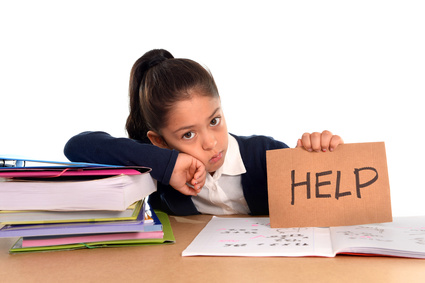Why do I enjoy working with anxious kids and what are anxious kids like? Maybe you think you have an anxious kid, were an anxious kid yourself, work with kids, or are curious about what this is about. Here is some information that I have learned from my years of clinical practice thanks to the trust and collaboration of so many children, teens, and families.
I can’t help notice some distinctive traits that consistenly come up. It’s something I can hear a parent describe in our very first phone consultation. And while of course, it goes without saying that each kid is unique and special in their own way, many of these qualities are par of the course for a lot of anxious kids.
1.Perfectionism: Perfectionism may seem like a positive trait and something to aspire to. And being a conscientious student and worker and high achiever is often thought of as a good trait. However, perfectionism at its core can be highly damaging. Anxious kids can really struggle with perfectionism and it is challenging to overcome. Some kids place an inordinate amount of pressure on themselves to get perfect grades and this is obviously a set up for stress and disappointment, let alone self hate and desperation. Sometimes they have learned perfectionism from watching an adult, sometimes it’s completely self afflicted. Wherever it comes from, it’s important to address in a compassionate manner and models greater flexibitiy and relief.
2.High Intellect/ Highly verbal: It may not be a surprise that the anxious kids are the overthinkers. It is often because they are so aware and attuned to their surroundings that it doesn’t take much to trigger an anxious downward spiral into thoughts, thoughts, and more thoughts (All bad ones of course). While this is certainly a gift, for some kids who are very sensitve and imaginative it can be a perfect storm.
3.Overthinkers: These kids can amaze you when they share their thoughts and beliefs about the world. Their curiosity is epic. Unfortunately, anxiey and anxious thoughts can take you down a dark road and it’s this thinking and overthinking that gets in the way of taking action, which is a more effective problem solving approach. It can be challening for these kids to get out of their heads and be present to their current surroundings.
4.Sensitve and empathic: These kids have the biggest hearts you’ll ever know. They care so much for their families, friends, the world and they literally feel what others are feeling. While this too is also a gift, until a child learns how to implement boundaries it can feel like a weakness.
5.High achievers: These kids are doing great academically, but sadly to their dismay they are never pleased with their acheivement and always wish to improve themselves continuing to add stress. They may truly feel like a failure in the midst of what to many others looks like great success.
6.Intuitive: These kids can do a great job at reading the emotions and intent of others, although this can be challenging to distinguish since anxiety will trick us into percieving the worst possible scenario.
7.Intellectually advanced but not necessarily emotionally advanced: Even though a lot of these kids may even be identified by the school system as gifted and talented they are not always at or above age level in emotional development. In fact they may not have developed those skills yet, simply because kids don’t learn everything at once. They may struggle socially and while their anxious minds may be catastrophizing disastrous events, they don’t often have the emotional skills to deal with the intensity of their feelings.
8.Twice exceptional: If you’re not familiar with this term used by the school board to identify kids who are gifted and also learning disabled, now you know what it called. Because of signficant discrepancies among kids skill development, this can be uncomfortable, confusing, and frustrating and can trigger stress and anxiety.
9.Family history/ genetic vulnerability: It’s not a surprise that lots of anxious kids come from anxious parents. It’s no one’s fault. It’s simply genetic, just like many other medical conditions. Our nervous systems are sometimes overly primed and we are just more jumpy and on edge than others. Our brains may be mispercieving threat exacerbating or triggering the anxiey spiral, in constrast to someone else with a calm and mellow system who is more relaxed.
10. Introverted: Many of these kids really need their alone time to recharge, process events, and cool down from busy days of overstimulation. They feel better after they can have some peaceful and calm time and while introversion is often noted as a strong personality trait in that people are observant, conscientious, and thoughtful it is important to decifer if your anxious child is spending too much time alone. In order to do that we want to look at the function of the behavior. That means if they are alone to recharge and chill that is great. If they are alone because they are avoiding something due to stress and anxiety and if they are isolating due to depression, then that is something else that requires attention and intervention.
If you think you or your child may be suffering from anxiety, don’t hestitate to schedule and intial phone consultation to discuss your concerns and see if (CBT) cognitive behavioral therapy is right for you.







Follow me...